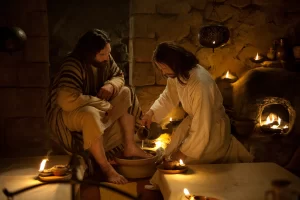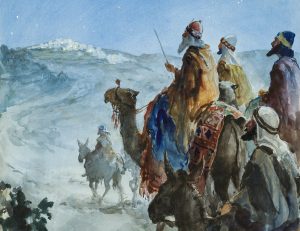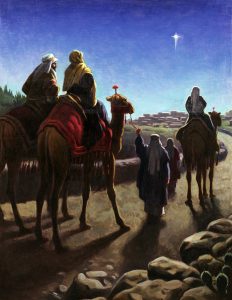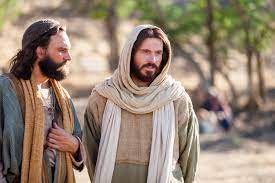Human beings are complex beings, to say the least!
Somehow, we know this from experience.
The scene of the Last Supper of Jesus with his apostles gives us a vivid picture of it as well (Jean 13:1-15).
Especially the dialogue between Jesus and Peter.
 It starts silently as Jesus comes near to Peter and kneels to wash his feet.
It starts silently as Jesus comes near to Peter and kneels to wash his feet.
Bewildered – I think this is a fair description of him – Peter questions Jesus:
“Lord, do you wash my feet?”
This seems an impossible course of action – it is absolutely unworthy of Jesus, their Master!
Jesus explains that Peter cannot understand now, but he will understand later.
Peter remains adamant:
“You shall never wash my feet.”
He will finally accept when Jesus links this gesture to the relationship with him that Peter wants very much, of course.
The attitude of Peter is perhaps characteristic of our reaction in certain situations…
We present God with… questions and protestations!…
It is as if, somehow, we knew better than God!
God could give us the answer of Jesus to Peter:
“You cannot understand now…”
It is so very true: there are many situations that puzzle us.
Many events baffle us completely.
We are bewildered by what takes place before our eyes, or in our lives.
Perhaps we need to follow the example Peter’s yielding to Jesus’ request.
What brought the change in the apostle was his desire to remain for ever the friend of Jesus.
His strong affirmation: “You shall never wash my feet”,
was transformed by his eagerness to remain a faithful friend and disciple for ever…
Our repeated ‘never’ can also be transformed into ‘for ever’…
Thus becoming, in our turn, faithful friends and disciples of Christ.
Note: Another text is available on a different theme, in French, at: https://image-i-nations.com/jeudi-saint-la-cene-du-seigneur-annee-b-2024/
 Q for Questions
Q for Questions QUESTIONS: there are all kinds of them, they are countless.
QUESTIONS: there are all kinds of them, they are countless. In fact, these questions are directed to… God himself!
In fact, these questions are directed to… God himself!





 Mais il nous laisse le soin d’interpréter ses paroles.
Mais il nous laisse le soin d’interpréter ses paroles. Today the long gospel text presents us with two different scenes (John 21:19-31).
Today the long gospel text presents us with two different scenes (John 21:19-31).